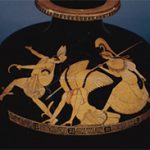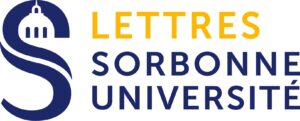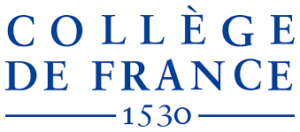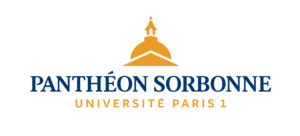Mutilating the body in Ancient Greece: Perception, vocabulary and practices
[fr]
- – Mercredi 20 juin 2018 de 16h à 18h
Conférence et vidéo conférence de Yannick Muller, Université de Strasbourg
_ Sur place au CNRS d’Ivry sur Seine, 27 rue Paul Bert, métro Porte de Choisy/Porte d’Ivry, salle C en sous-sol
ou à distance par vidéo-conférence
[en]
- – Wenesday, June 20, 2018 4 p.m.-6 p.m.(Paris time)
A lecture by Yannick Muller (Strasburg University)
CNRS building, 27 rue Paul Bert, Porte de Choisy/Porte d’Ivry subway station, room C in the basement or by distance through video-conference

[fr]
Cette conférence est la 20e séance mensuelle du séminaire interdisciplinaire :
“The Individual and his Body in the Ancient Mediterranean Basin” organisé par Alice Mouton.
Résumé : The ancient Greek civilisation is well known for its art characterized by the enhancement of the beauty of the body. The texts themselves, since Homer, tend to emphasize the beauty of youth and the perfection of the body’s integrity without flaws or missing parts. The mutilation of the body was viewed among the ancient Greeks as a mark of ‘barbaric’ (i.e. non-Greek) culture or as a symbol of punishment and enslavement. In this paper, I will call ‘mutilation’ any kind of permanent body alteration, following the French anthropologist Claude Chippaux. I will present the main results of my research, dwelling on some paradigmatic cases. First, I will show how ancient Greek literature and culture emphasized the beauty of the complete body and rejected all kinds of body modification. Secondly, I will focus on the Greek vocabulary of body mutilation; despite the absence of a single word to express it, a large range of compound verbs and substantives exist. I will also present a few passages illustrating Greek mutilation practices. These will show that, despite their disdain for altering the body, Greeks themselves thought they had practiced mutilation in their distant past; they were still tempted to do so in historical times.
- Pour assister à la conférence (sur place à Ivry sur Seine ou par video-conference) merci de vous inscrire gratuitement à l’adresse suivante :
Alice Mouton.http://www.labex-resmed.fr/l-individu-et-son-corps-dans-le
http://www.orient-mediterranee.com/spip.php?article2958&lang=en
All the persons who are interested in attending the session (either in Ivry sur Seine or through video-conference) are welcome for free but should register by e-mail beforehand.
contact: alice.mouton@cnrs.fr
_ avec le soutien du Labex RESMED 




